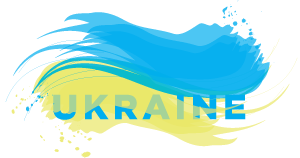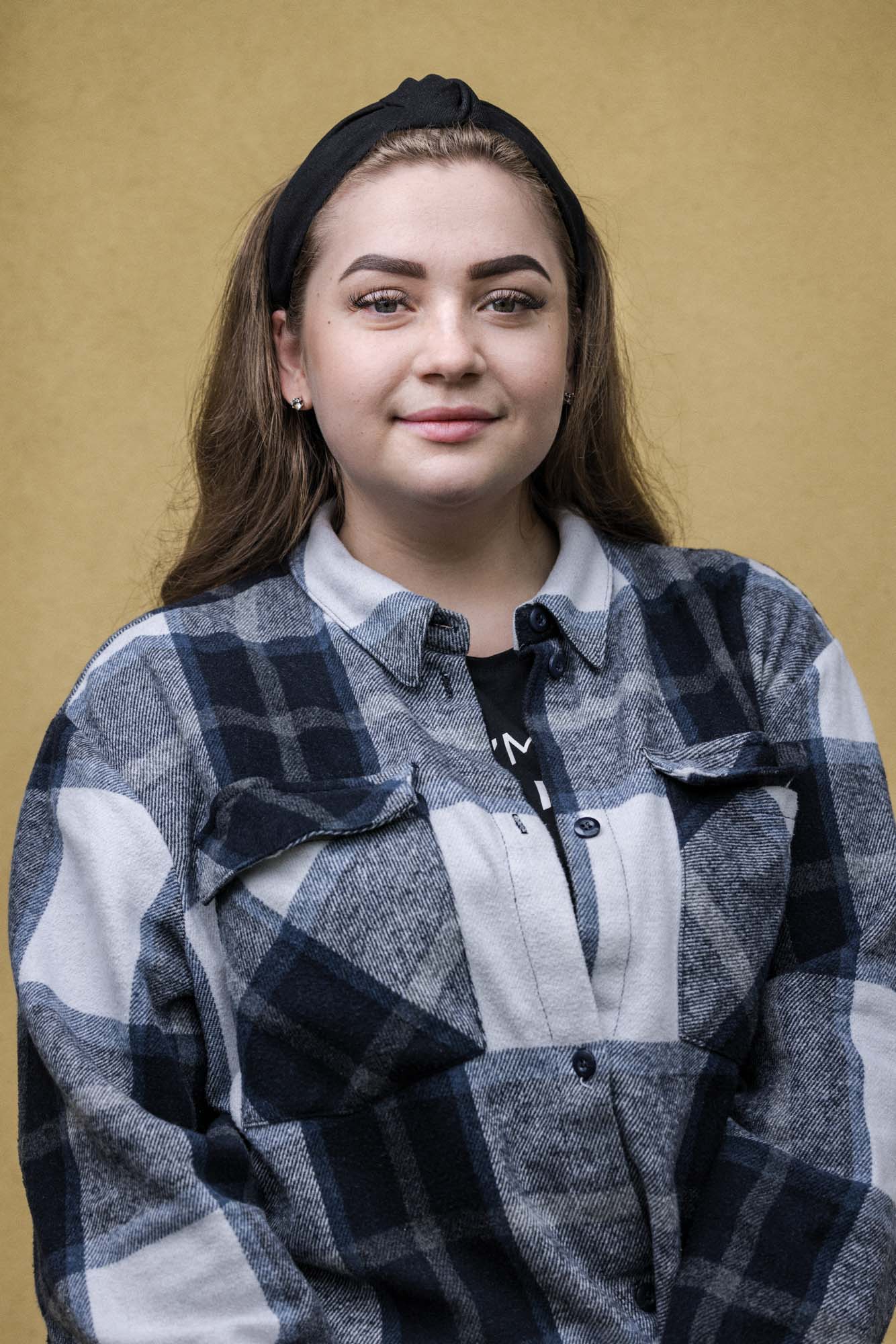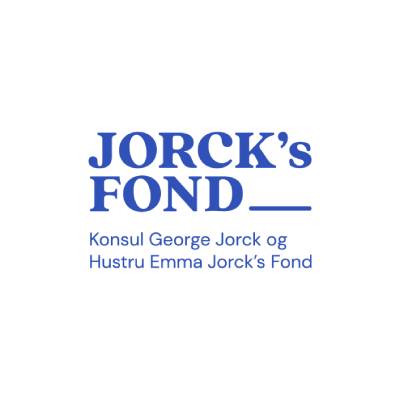Karyna
They used my mother as a shield. She was forced to walk in front of the house.

language
Portrait BY MARTIN THAULOW
Karyna is sitting at a busy café in Mykolaiv, a city not too far from Kherson in Southern Ukraine. The sound of milk being steamed to make lattes and upbeat music is heard in the background as Karyna tells the story of how, last year, she was forced to flee the small village she was born in.
The small villages
In the first days of the war, many people considered small villages like Karyna’s to be safer places than the larger cities. Especially families with small children decided to relocate to the countryside until it quickly became apparent that the villages were more, not less, dangerous places to be. Around 50 people came to Karyna’s hometown at the start of the war, most of them relatives to the around 200 people already living there.
The grave zone
Not too long after the full-scale invasion by the Russian forces in February last year, Karyna’s village became part of what is considered a ‘grave zone’, a no man’s land where the front line is continually moving back and forth. Sometimes they had Ukrainian soldiers staying in the town, at other times Russian soldiers who would forcefully enter their homes. By the end of March, the situation was bad. There was continual fighting and no sustainable front line.
Karyna
We saw how the Russians burned the Ukrainian soldier alive, when he didn't leave the storage room.
The neighboring house to where Karyna was living with her parents, brother and grandmother was empty. Five Ukrainian soldiers decided to use the house, getting in an advance position, but the Russians were too close. “They watched us, and we watched them,” Karyna says. “We could see the Russians spotting the place. The next day, they stormed it.” Two groups of ten Russian soldiers each moved along different streets to approach the house, and fighting began. The Ukrainian soldiers, outnumbered, had hidden in a small storage chamber used for food when the Russians came and surrounded them. Four of the Ukrainian soldiers decided to come out and surrender, one declined and stayed. The Russians burned the storage room down, burning the remaining soldier alive.
“I don’t know what happened with the other four,” Karyna says. “Occasionally, a soldier taken captive manages to get away, or they might have been executed somewhere nearby.” When the Russians had taken the soldiers away, they came to Karyna’s house where all five members of her family - her parents, brother, grandmother and herself - had also hidden in a small storage room. It became clear that if they didn’t come out, the Russians would throw grenades, killing them like they had killed the soldier that had refused to surrender.
Karyna
They forced my father to strip naked. I panicked...
When the family came outside, the Russians shouted at them and shot in the air, trying to frighten them, Karyna explains. The Russian soldiers forced Ruslan, her father, to strip naked in order to look for patriotic tattoos that might mark him as part of the military. “I became panicked,” Karyna remembers. “I started shouting: Don’t touch him, don’t touch him, he is a civilian, there are no soldiers here!”
The Russian soldiers then received a radio message that Ukrainian reinforcements were on their way, a group of around 50 soldiers. They occupied Karyna’s house, broke the windows and a battle began from the family home. Later, when it became clear that they were losing the fight, some of the Russians also hid in the house together with Karyna and her family.
A human shield
During the battle between the twenty Russian soldiers and the Ukrainian reinforcements, the Russian occupiers decided to use Karyna’s mother, Angela, as a human shield. During close fighting, they made her walk out into the open to let the Ukrainians know that there were civilians in the house, so they would stop shooting at the spot.
Karyna
At times, I felt deeply panicked that we would all be burned alive there. That this room would be a shared mass grave.
Some of the Russian soldiers were from Donetsk, young, well-trained and well-equipped separatists. “They were professionals, an elite storming group,” Karyna explains. “Close to the evening, they had one severely wounded soldier and decided to withdraw. Then our house itself became a grave zone between the two forces.” Karyna’s family were all left sitting throughout the night in the cold, cramped storage room, having no opportunity to leave and listening to the very precise shelling happening overhead. “At times, I felt deeply panicked that we would all be burned alive there. That this room would be a shared mass grave.”
Getting out
The next morning, Karyna and her family took what they could carry and moved deeper into the village in search of an abandoned house. The goal was simply to change position. The Russian soldiers had confiscated Ruslan’s phone which still contained some military contacts from when he had been drafted back in 2014 to host training sessions for the military. Even though he had never been in battle, Ruslan thought that the Russians would return after having had time to search the phone, maybe attacking the house.
The family didn’t find an empty house, but they reached a Ukrainian military position and managed to flee the village. From there, they were walking for around several hours, not knowing where to go as they had no working phones; Ruslan’s phone was gone, and the others’ mobiles had shut down due to the lack of electricity needed to charge them. Eventually, they reached another town where a group of Ukrainian soldiers welcomed them and gave them food and hot drinks. From there, they went to Mykolaiv by school buses which were provided by the Ukrainian government to evacuate people. Now, Karyna’s brother and grandmother are staying with a relative near Chernobyl, but Karyna and her parents are living in Mykolaiv.
Those left behind
At this time, by the end of March, people had realized that Karyna’s village was too dangerous to stay in. With the help of Ukrainian soldiers, they managed to get away, though the Russians refused to provide a ceasefire for the evacuation. Despite parents leaving with white flags and carrying children on their shoulders, the Russians still continued to shell the area. Even with the evacuations, around 10 elderly people were also still forced to stay in the town, too disabled or weak to walk the 20 km needed to get to the buses.
Karyna
Volodymyr, my grandfather... He stayed back and was killed.
Among those that stayed were Karyna’s grandfather, Volodymyr, and great grandfather, Mikhail. Volodymyr helped Ukrainian soldiers in the area; he took them in, hosted them in his house and provided food, warmth and a place to rest. The Russians discovered this and opened artillery fire on his house. It was hit directly, and Karyna’s grandfather was killed. Her great grandfather, 85 years old and disabled, was forced to stay in the village till July when Ukrainian soldiers were able to evacuate the remaining people. He was relocated to the Chernobyl district but wasn’t able to mentally handle his experience and died in February as a consequence of it.
Losing everything
“War is something that takes away everything that you have, everything that you have had all throughout your life, and forces you to start from zero,” Karyna says, while American pop music continues to quietly play in the background. “My parents cannot cope; they still cannot believe that they have lost everything that they have worked to gain throughout their whole life and now have to start that life over.” Karyna and her parents have been back to their village once, after Ukrainian forces liberated it on November 10th, but there is nothing left of their house or yard, only a few of the walls are still standing. The village is also filled with landmines. The day after they had gone to visit, a car with five soldiers hit a landmine on the same road as they had used to go back.
Karyna
For me, it is extremely complicated to think about the future. I don’t do it all. The only thing related to the future, I think about, is victory.
“For me, it is extremely complicated to think about the future. I don’t do it all. The only thing related to the future, I think about, is victory,” Karyna says. When asked what she does to find the strength to cope with the situation, she answers that she tries to cheer up her relatives. “We have survived. God let us survive for some mission we haven’t yet accomplished, so we have to go on living for that mission – for our military and for victory.”
Voices of the future
Portraits & stories by Martin Thaulow
Translations Ukrainian Katerina Chalenko
Stories in English Amalie Pi Sørensen
Partners


Backed by
Карина
(22 роки) з Миколаївської області УКРАЇНА
Вони використовували мою маму як щит. Її змусили вийти на вулицю перед будинком.

language
ПОРТРЕТ ЗРОБЛЕНИЙ МАРТІНОМ ТАУЛОУ
Карина сидить у жвавій кав'ярні у Миколаєві - місто неподалік від Херсона, що на півдні України. Коли Карина розповідає історію про те, як минулого року вона була змушена покинути маленьке село, в якому народилася, ми чуємо звук приготування молока для латте, і бадьору музику на задньому плані.
Маленькі села
У перші дні війни багато людей вважали, що маленькі села, як село де жила Карина, безпечніші, ніж великі міста. Особливо сім'ї з маленькими дітьми переїжджали в сільську місцевість. Доки швидко не стало очевидним те, що села є більш, а не менш небезпечними місцями для проживання. Близько 50 осіб приїхали до рідного міста Карини на початку війни, більшість з них були родичами (близько 200 осіб) людей, які постійно жили там.
Зона смерті
Невдовзі після повномасштабного вторгнення російських військ у лютому минулого року, село Карини стало частиною так званої "зони смерті" - пустої землі, де лінія фронту постійно пересувається. Іноді в селищі зупинялися українські військові, іноді - російські, які силою вривалися в будинки мешканців селища. До кінця березня ситуація була поганою. Бойові дії тривали безперервно, лінія фронту не була стабільною.
Карина
Ми бачили, як росіяни спалили українського військового живцем, коли він не вийшов зі сховища.
Дім, сусідній від будинку Карини, де вона жила з батьками, братом і бабусею, був порожній. П'ятеро українських військових вирішили скористатися цим будинком, зайнявши передову позицію, але росіяни були занадто близько. "Вони спостерігали за нами, а ми за ними”, - розповідає Карина. “Ми бачили, як росіяни помітили це місце. Наступного дня вони його штурмували”. Дві групи по десять російських солдатів рухалися різними вулицями, щоб наблизитися до будинку, де були українські військові. Невдовзі, почався бій. Коли росіяни підійшли близько до будинку і оточили його, то українські військові, які перебували в меншості, сховалися в невеликому сховищі, що використовувалося для зберігання продуктів харчування. Четверо українських військових вирішили вийти і здатися, один відмовився і залишився. Росіяни спалили все, а військовий, що залишився, згорів живцем.
“Я не знаю, що сталося з іншими чотирма військовими”,- каже Карина. “Іноді військовим, які потрапляють у полон, вдається втекти, або їх могли стратити десь неподалік”. Коли росіяни забрали українських військових, то потім прийшли до будинку Карини, де всі п'ятеро членів її сім'ї - батьки, брат, бабуся і вона сама - також сховалися в маленькій комірчині. Стало зрозуміло, що якщо вони не вийдуть, росіяни закидають їх гранатами і вб'ють так само, як вони вбили військового, який відмовився здатися.
Карина
Вони змусили мого батька роздягнутися догола. Я спантеличився!
Коли сім'я вийшла на вулицю, росіяни кричали на них і стріляли в повітря, намагаючись налякати. Російські солдати змусили Руслана, батька Карини, роздягнутися догола, намагаючись знайти патріотичні татуювання, які могли б засвідчити його приналежність до українських військових. “Я запанікувала”, - згадує Карина. “Я почала кричати: 'Не чіпайте його, не чіпайте, він цивільний, тут немає військових'!”
Потім російські солдати отримали радіоповідомлення про те, що підкріплення українських військових в дорозі, і що це група близько з 50 людей. Вони зайняли будинок Карини, розбили вікна, а потім почався бій. Пізніше, коли стало зрозуміло, що російські солдати програють, частина сховалася разом з Кариною та її родиною.
Живий щит
Під час бою між двадцятьма російськими солдатами та підкріпленням з української сторони, російські окупанти вирішили використати матір Карини, Анжелу, як живий щит. Під час ближнього бою вони змусили її вийти на вулицю, щоб дати зрозуміти українським військовим, що в будинку перебувають цивільні, і щоб вони припинили стріляти.
Карина
Часом я відчувала глибоку паніку, що ми всі там згоримо живцем. Що ця кімната стане братською могилою.
Деякі з російських солдатів були родом із Донецька: молоді, добре навчені та добре екіпіровані сепаратисти. “Це були професіонали, елітна штурмова група”, - пояснює Карина. “Ближче до вечора у них був важко поранений солдат, і вони вирішили відступити. Тоді наш будинок став “зоною смерті” між двома силами”. Сім'я Карини залишилася сидіти всю ніч у холодній, тісній комірчині, не маючи можливості вийти і прислухаючись до пострілів. “Часом я відчувала глибоку паніку, що ми всі там згоримо живцем. Що ця кімната стане братською могилою”.
Втеча
Наступного ранку Карина та її сім'я взяли все, що могли нести, і пішли на пошуки вільного будинку. Метою було просто змінити позицію. Російські солдати конфіскували телефон Руслана, який містив деякі контакти військових ще з 2014 року, коли він був призваний на тренування для військових. Хоча він ніколи не був у бою, Руслан думав, що росіяни повернуться після того, як встигнуть обшукати телефон, і, можливо, нападуть на їх будинок, в котрому вони оселяться.
Порожнього будинку сім'я не знайшла, але вони дійшли до позиції українських військових і змогли втекти з села. Звідти вони йшли пішки близько кількох годин, не знаючи, куди саме, оскільки у них не було робочих телефонів; телефон Руслана забрали росіяни, а мобільні телефони інших членів родини були вимкнені через відсутність електрики. Зрештою, вони дісталися іншого міста, де їх зустріла група українських військових, які дали їм їжу та попити гарячого. Звідти вони вирушили до Миколаєва на шкільних автобусах, які були надані українським урядом для евакуації людей. Зараз брат і бабуся Карини живуть у родичів поблизу Чорнобиля, а Карина з батьками - у Миколаєві.
Ті, хто залишився
Наприкінці березня, мешканці села зрозуміли, що залишатися там надто небезпечно. За допомогою українських військових мешканцям вдалося виїхати, хоча росіяни не припиняли вогонь під час евакуації. Незважаючи на те, що батьки виходили з білими прапорами і несли дітей на плечах, росіяни все одно продовжували обстрілювати територію. Близько 10 людей похилого віку були змушені залишитися в місті, оскільки вони були надто слабкі, щоб пройти 20 км до автобусів.
Карина
Володимир, мій дідусь... Він залишився і його вбили.
Серед тих, хто залишився, були дідусь Карини, Володимир, і прадідусь, Михайло. Володимир допомагав українським військовим у цій місцевості, приймав їх у себе вдома, забезпечував їжею, теплом і місцем для відпочинку. Росіяни дізналися про це і відкрили артилерійський вогонь по його будинку. Під час обстрілу дідусь Карини загинув. Її прадідусь, котрому 85 років і котрий є людиною з інвалідністю, був змушений залишатися в селі до липня, до того моменту, коли українські військові змогли евакуювати решту людей. Він був евакуйований до Чорнобильського району, але не зміг психологічно впоратися з пережитим і у лютому він помер.
Втратити все
“Війна - це те, що забирає все, що в тебе є, все, що ти мав протягом усього життя, і змушує починати з нуля”, - каже Карина, а на задньому плані продовжує тихо грати американська поп-музика. “Мої батьки не можуть впоратися з цим, вони досі не можуть повірити, що втратили все, над чим вони працювали все своє життя, і тепер повинні починати з нуля”. Карина та її батьки поверталися до свого села лише один раз, після того, як 10 листопада українські війська його звільнили. Але від їх будинку нічого не залишилося, лише кілька стін. Село досі заміноване. Коли родина їздила в рідне селище, машина з п'ятьма солдатами підірвалася на міні, на тій самій дорозі, якою родина поверталася назад.
Карина
Для мене надзвичайно складно думати про майбутнє. Я цього не роблю. Єдине, про що я думаю, - це перемога.
“Для мене надзвичайно складно думати про майбутнє. Я цього не роблю. Єдине, про що я думаю, - це перемога”, - каже Карина. На питання, що вона робить, щоб знайти в собі сили впоратися з ситуацією, вона відповідає, що намагається підбадьорити своїх рідних. “Ми вижили. Бог дав нам вижити для якоїсь місії, яку ми ще не виконали, тож треба жити для цієї місії - для наших військових і для перемоги”.
Підтримайте нашу роботу
Голоси майбутнього
Portraits & stories by Martin Thaulow
Translations Ukrainian Katerina Chalenko
Stories in English Amalie Pi Sørensen
Партнер


За підтримки
Karyna
Sie haben meine Mutter als Schild benutzt. Sie wurde gezwungen, draußen vor dem Haus zu gehen.

language
PORTRÄT VON MARTIN THAULOW
Karyna sitzt in einem belebten Café in Mykolajiw, einer Stadt nicht weit von Cherson im Süden der Ukraine. Im Hintergrund hört man das Geräusch von Milch, die zu Milchkaffee aufgeschäumt wird und fröhliche Musik, während Karyna erzählt, wie sie im vergangenen Jahr gezwungen war, aus dem kleinen Dorf zu fliehen, in dem sie geboren wurde.
Die kleinen Dörfer
In den ersten Tagen des Krieges hielten viele Menschen kleine Dörfer wie das von Karyna für sicherere Orte als die größeren Städte. Vor allem Familien mit kleinen Kindern beschlossen, aufs Land zu ziehen, bis sich schnell herausstellte, dass die Dörfer nicht etwa ungefährlicher, sondern gefährlicher waren. Zu Beginn des Krieges kamen etwa 50 Menschen in Karynas Heimatort, die meisten von ihnen Verwandte der etwa 200 bereits dort lebenden Menschen.
Die Grabzone
Nicht allzu lange nach dem vollständigen Einmarsch der russischen Streitkräfte im Februar letzten Jahres wurde Karynas Dorf Teil einer so genannten „Grabzone“, eines Niemandslands, in dem sich die Frontlinie ständig hin und her bewegt. Manchmal hielten sich ukrainische Soldaten in der Ortschaft auf, ein andermal drangen russische Soldaten gewaltsam in die Häuser ein. Ende März war die Lage schlimm. Die Kämpfe dauerten an und die Frontlinie war nicht mehr haltbar.
Karyna
Die Russen brannten die Vorratskammer nieder und verbrannten den verbliebenen Soldaten bei lebendigem Leib.
Das Nachbarhaus, in dem Karyna mit ihren Eltern, ihrem Bruder und ihrer Großmutter wohnte, stand leer. Fünf ukrainische Soldaten beschlossen, das Haus zu nutzen und in eine Vorstoßposition zu gelangen, aber die Russen waren zu nahe. “Sie beobachteten uns, und wir beobachteten sie”, sagt Karyna. “Wir konnten sehen, wie die Russen das Haus ausspähten. Am nächsten Tag stürmten sie es.” Zwei Gruppen von jeweils zehn russischen Soldaten näherten sich dem Haus über verschiedene Straßen und die Kämpfe begannen. Die ukrainischen Soldaten, die zahlenmäßig unterlegen waren, hatten sich in einer kleinen Vorratskammer für Lebensmittel versteckt, als die Russen kamen und sie umzingelten. Vier der ukrainischen Soldaten beschlossen, herauszukommen und sich zu ergeben, einer weigerte sich und blieb. Die Russen brannten die Vorratskammer nieder und verbrannten den verbliebenen Soldaten bei lebendigem Leib.
“Ich weiß nicht, was mit den anderen vier passiert ist”, sagt Karyna. “Gelegentlich gelingt es einem gefangenen Soldaten, zu entkommen oder sie wurden irgendwo in der Nähe hingerichtet.” Als die Russen die Soldaten weggebracht hatten, kamen sie zu Karynas Haus, wo sich alle fünf Familienmitglieder - ihre Eltern, ihr Bruder, ihre Großmutter und sie selbst - ebenfalls in einem kleinen Lagerraum versteckt hatten. Es war klar, dass, wenn sie nicht herauskämen, die Russen Granaten werfen und sie töten würden, so wie sie den Soldaten getötet hatten, der sich geweigert hatte, sich zu ergeben.
Karyna
Sie zwangen meinen Vater, sich nackt auszuziehen. Ich geriet in Panik.
Als die Familie nach draußen kam, schrien die Russen sie an und schossen in die Luft, um sie zu verängstigen, erklärt Karyna. Die russischen Soldaten zwangen Ruslan, ihren Vater, sich nackt auszuziehen, um nach patriotischen Tätowierungen zu suchen, die ihn als Mitglied des Militärs ausweisen könnten. “Ich geriet in Panik”, erinnert sich Karyna. “Ich fing an zu schreien: Fasst ihn nicht an, fasst ihn nicht an, er ist ein Zivilist, hier gibt es keine Soldaten!”
Daraufhin erhielten die russischen Soldaten einen Funkspruch, dass ukrainische Verstärkung auf dem Weg sei, eine Gruppe von etwa 50 Soldaten. Sie besetzten das Haus von Karyna, schlugen die Fenster ein und ein Kampf vom Haus der Familie aus begann. Später, als klar wurde, dass sie den Kampf verlieren würden, versteckten sich auch einige der Russen zusammen mit Karyna und ihrer Familie in dem Haus.
Ein menschlicher Schutzschild
Während des Kampfes zwischen den zwanzig russischen Soldaten und der ukrainischen Verstärkung beschlossen die russischen Besatzer, Karynas Mutter Angela als menschliches Schutzschild zu benutzen. Während der engen Kämpfe zwangen sie sie, ins Freie zu gehen, um den Ukrainern zu zeigen, dass sich Zivilisten im Haus befanden, damit sie aufhörten, auf sie zu schießen.
Karyna
Manchmal hatte ich große Angst, dass wir dort alle bei lebendigem Leibe verbrannt werden würden. Dass dieser Raum ein gemeinsames Massengrab werden würde.
Einige der russischen Soldaten stammten aus Donezk, junge, gut ausgebildete und gut ausgerüstete Separatisten. “Sie waren Profis, eine Elite-Sturmtruppe”, erklärt Karyna. “Gegen Abend hatten sie einen schwer verwundeten Soldaten und beschlossen, sich zurückzuziehen. Dann wurde unser Haus selbst zu einer Grabzone zwischen den beiden Streitkräften.” Karynas Familie saß die ganze Nacht über in dem kalten, engen Lagerraum, hatte keine Möglichkeit, das Haus zu verlassen und hörte den äußerst präzisen Granatenbeschuss über sich. “Manchmal hatte ich große Angst, dass wir dort alle bei lebendigem Leibe verbrannt werden würden. Dass dieser Raum ein gemeinsames Massengrab werden würde.”
Die Flucht
Am nächsten Morgen nahmen Karyna und ihre Familie alles, was sie tragen konnten und zogen auf der Suche nach einem verlassenen Haus tiefer in das Dorf hinein. Das Ziel war einfach, die Position zu wechseln. Die russischen Soldaten hatten Ruslans Telefon konfisziert, das noch einige militärische Kontakte aus der Zeit enthielt, als er 2014 eingezogen worden war, um Trainingseinheiten für das Militär zu halten. Obwohl er nie im Kampf gewesen war, dachte Ruslan, dass die Russen zurückkommen könnten, nachdem sie genügend Zeit gehabt hatten, das Telefon zu durchsuchen und dann vielleicht auch das Haus angreifen würden.
Die Familie fand zwar kein leerstehendes Haus vor, aber sie erreichte eine ukrainische Militärstellung und konnte aus dem Dorf fliehen. Von dort aus waren sie mehrere Stunden zu Fuß unterwegs, ohne zu wissen, wohin sie gehen sollten, da sie keine funktionierenden Handys hatten. Ruslans Handy war weg und die Handys der anderen hatten sich abgeschaltet, weil es keinen Strom gab, um sie aufzuladen. Schließlich erreichten sie eine andere Stadt, wo sie von einer Gruppe ukrainischer Soldaten empfangen wurden, die ihnen Essen und heiße Getränke gaben. Von dort aus fuhren sie mit Schulbussen, die von der ukrainischen Regierung zur Evakuierung der Menschen bereitgestellt wurden, nach Mykolajiw. Karynas Bruder und ihre Großmutter wohnen jetzt bei einem Verwandten in der Nähe von Tschernobyl, während Karyna und ihre Eltern in Mykolajiw leben.
Die Zurückgebliebenen
Ende März hatten die Menschen erkannt, dass es in Karynas Dorf zu gefährlich war, um dort zu bleiben. Mit Hilfe ukrainischer Soldaten gelang es ihnen zu fliehen, obwohl die Russen sich weigerten, eine Waffenruhe für die Evakuierung zu gewähren. Obwohl die Eltern mit weißen Fahnen und den Kindern auf den Schultern das Dorf verließen, setzten die Russen den Beschuss des Gebiets fort. Trotz der Evakuierung waren etwa 10 ältere Menschen gezwungen, in der Stadt zu bleiben, da sie zu gehbehindert oder zu schwach waren, um die 20 km zu Fuß zu den Bussen zu gehen.
Karyna
Volodymyr, mein Großvater... Er blieb zurück und wurde getötet.
Zu denjenigen, die in der Stadt blieben, gehörten Karynas Großvater Volodymyr und ihr Urgroßvater Mikhail. Volodymyr half den ukrainischen Soldaten in der Gegend; er nahm sie auf, beherbergte sie in seinem Haus und bot ihnen Essen, Wärme und einen Platz zum Ausruhen. Die Russen entdeckten dies und eröffneten das Artilleriefeuer auf sein Haus. Es wurde direkt getroffen, und Karynas Großvater wurde getötet. Ihr Urgroßvater, 85 Jahre alt und invalide, war gezwungen, bis Juli in dem Dorf zu bleiben, bis ukrainische Soldaten die verbliebenen Menschen evakuieren konnten. Er wurde in den Bezirk Tschernobyl umgesiedelt, konnte das Erlebte aber psychisch nicht verarbeiten und starb schließlich im Februar an den Folgen der Ereignisse.
Alles verlieren
“Krieg ist etwas, das einem alles nimmt, was man hat, alles, was man sein ganzes Leben lang hatte und das einen dazu zwingt, bei Null anzufangen”, sagt Karyna, während im Hintergrund leise amerikanische Popmusik läuft. “Meine Eltern können es nicht verkraften; sie können immer noch nicht glauben, dass sie alles verloren haben, was sie sich ihr ganzes Leben lang erarbeitet haben und nun von vorne anfangen müssen.” Karyna und ihre Eltern waren bereits nochmal in ihrem Dorf, nachdem die ukrainischen Streitkräfte es am 10. November befreit hatten, aber von ihrem Haus oder Hof ist nichts mehr übrig, nur ein paar Mauern stehen noch. Außerdem ist das Dorf mit Landminen übersät. Am Tag nach ihrem Besuch fuhr ein Auto mit fünf Soldaten auf derselben Straße, die sie für die Rückfahrt benutzt hatten, auf eine Landmine.
Karyna
Für mich ist es sehr kompliziert, über die Zukunft nachzudenken. Ich beschäftige mich einfach nicht damit. Das Einzige, woran ich in Bezug auf die Zukunft denke, ist der Sieg.
“Für mich ist es sehr kompliziert, über die Zukunft nachzudenken. Ich beschäftige mich einfach nicht damit. Das Einzige, woran ich in Bezug auf die Zukunft denke, ist der Sieg”, sagt Karyna. Auf die Frage, was sie tut, um die Kraft zu finden, mit der Situation fertig zu werden, antwortet sie, dass sie versucht, ihre Verwandten aufzumuntern. “Wir haben überlebt. Gott hat uns für eine Mission überleben lassen, die wir noch nicht erfüllt haben, also müssen wir für diese Mission weiterleben - für unser Militär und für den Sieg.”
Stimmen der Zukunft
Porträts & Geschichten von Martin Thaulow
Übersetzungen ins Ukrainische Katerina Chalenko
Geschichten auf Englisch Amalie Pi Sørensen
Partner


unterstützt von
Karyna
De brugte min mor som et skjold. Hun blev tvunget til at gå ude foran huset.

language
Portræt af MARTIN THAULOW
Karyna sidder på en travl café i Mykolaiv, en by forholdsvis tæt på Kherson i det sydlige Ukraine. Lyden af mælk der skummes til café latte, og popmusik høres i baggrunden, mens Karyna fortæller historien om, hvordan hun sidste år blev tvunget til at flygte fra den lille landsby, hun blev født i.
De små landsbyer
I de første dage af krigen anså mange de små landsbyer, som Karynas, for at være mere sikre end de større byer. Især familier med små børn besluttede sig for at flygte ud på landet. Det viste sig dog hurtigt, at landsbyerne var langt mere farlige at søge tilflugt i. I begyndelsen ankom omkring 50 mennesker til Karynas landsby. De fleste af dem var slægtninge til de omkring 200 mennesker, som boede der i forvejen.
Gråzonen
Kort efter den russiske invasion i februar 2022 blev Karynas landsby en del af det, der betegnes som 'gråzonen', et ingenmandsland, hvor frontlinjen konstant bevæger sig frem og tilbage. Nogle gange havde de ukrainske soldater kontrol med landsbyen, andre gange blev kontrollen overtaget af russiske soldater, der tvang sig ind i deres hjem. Ved udgangen af marts var situationen slem. Der var kontinuerlige kampe og ingen stabil front.
Karyna
Russerne brændte den ukrainske soldat levende i forrådskammeret.
Karyna boede med sine forældre, bror og bedstemor i et hus, og nabohuset ved siden af stod tomt. Fem ukrainske soldater besluttede sig for at bruge huset som en fremskudt position mod russerne, som var meget tæt på. “De holdt øje med os, og vi holdt øje med dem,” siger Karyna. “Vi kunne se, at russerne observerede stedet. Næste dag stormede de det.” To grupper med ti russiske soldater i hver nærmede sig ad forskellige gader for at komme til huset, og kampene begyndte. De ukrainske soldater var i undertal, og gemte sig i et lille udendørs forrådskammer, da russerne omringede dem. Fire af de ukrainske soldater besluttede at overgive sig, mens den sidste nægtede og blev i kammeret. Russerne brændte den ukrainske soldat levende i forrådskammeret.
“Jeg ved ikke, hvad der skete med de andre fire,” siger Karyna. “Af og til lykkes det en soldat, der er tilfangetagen, at slippe væk, eller de kan være blevet henrettet et sted i nærheden.” Da russerne havde ført soldaterne væk, kom de til Karynas hus, hvor alle fem familiemedlemmer også havde gemt sig i et lille tilhørende forrådskammer. Det blev klart for dem, at hvis de ikke kom ud, ville russerne kaste granater ind og dræbe dem. De ville lide samme skæbne, som soldaten der nægtede at overgive sig.
Karyna
De tvang min far til at smide alt tøjet. Jeg panikkede!
“Russerne råbte og skød op i luften for at skræmme os,” forklarer Karyna. De russiske soldater tvang Ruslan, Karynas far, til at smide alt tøjet, så de kunne lede efter patriotiske tatoveringer, der afslørede ham som en del af militæret. “Jeg panikkede,” husker Karyna. “Jeg begyndte at råbe: Rør ham ikke, rør ham ikke, han er en civil, der er ingen soldater her!”
De russiske soldater modtog derefter en radiomeddelelse om, at ukrainske forstærkninger var på vej, en gruppe på omkring 50 soldater. De besatte Karynas hus, smadrede vinduerne og kampene begyndte fra familiens hjem. Senere, da det blev klart, at russerne ville tabe den kamp, gemte nogle af soldaterne sig i huset sammen med Karyna og hendes familie.
Et menneskeligt skjold
Under kampene mellem de tyve russiske soldater og de ukrainske forstærkninger besluttede de russiske soldater at bruge Karynas mor, Angela, som et menneskeskjold. Under de intense kampe tvang de hende til at gå ud i det åbne for at lade ukrainerne vide, at der var civile i huset. Det for at få dem til at stoppe med at skyde mod stedet.
Karyna
Der var tidspunkter, hvor jeg følte mig dybt panikslagen, overbevist om, at vi alle ville brænde levende. At kammeret ville blive til en fælles massegrav.
Nogle af de russiske soldater kom fra Donetsk, unge, veltrænede og veludstyrede separatister. “De var professionelle, elite stormtropper,” forklarer Karyna. “Tæt på aftenen havde de en alvorligt såret soldat og besluttede at trække sig tilbage. Derefter blev vores hus forvandlet til en frontlinje mellem de to styrker.” Karynas familie sad tilbage hele natten i det kolde, trange opbevaringsrum og havde ingen mulighed for at forlade det og lyttede til de meget præcise bombardementer, der fandt sted over deres hoveder. “Der var tidspunkter, hvor jeg følte mig dybt panikslagen, overbevist om, at vi alle ville brænde levende. At kammeret ville blive til en fælles massegrav”
Flugten væk
Næste morgen tog Karyna og hendes familie, hvad de kunne bære, og flygtede længere ind i landsbyen for at lede efter et forladt hus. Målet var at skifte position. De russiske soldater havde beslaglagt Ruslans telefon, der stadig indeholdt militær kontakter fra dengang, han var indkaldt i 2014 for at træne i militæret. Selvom han aldrig havde været i kamp, mente Ruslan, at russerne ville vende tilbage efter at have haft tid til at undersøge telefonen, og måske angribe huset.
Familien fandt ikke et tomt hus, men de nåede i stedet til en ukrainsk militærposition og derfra lykkedes det at flygte væk fra landsbyen. De gik i flere timer, uden at vide, hvor de skulle hen. Ruslans telefon var hos russerne, og de andres mobiltelefoner var løbet tør, da de ikke havde haft strøm til at oplade. Til sidst nåede de en anden by, hvor en gruppe ukrainske soldater tog mod dem og sørgede for mad og varme drikke. Derfra gik turen til Mykolaiv med skolebusser, som den ukrainske regering brugte til at evakuere folk med. Nu opholder Karynas bror og bedstemor sig hos en slægtning nær Tjernobyl, og Karyna og hendes forældre bor i Mykolaiv.
De efterladte
I slutningen af marts 2022, havde folk i landsbyen indset, at det var for farlig at blive. Med hjælp fra ukrainske soldater lykkedes det at evakuere folk, selvom russerne nægtede at indstille kampene. Til trods for at forældrene forlod byen med hvide flag og grædende børn på skuldrene fortsatte russerne med at beskyde området. Efter evakueringen var omkring 10 ældre mennesker stadig tvunget til at blive i byen. De var for svage eller svækkede til at gå de 20 km, der var nødvendige for at komme til busserne.
Karyna
Volodymyr, min bedstefar... Han blev tilbage og blev dræbt.
Karynas bedstefar, Volodymyr, og oldefar, Mikhail var blandt dem, som blev tilbage. Volodymyr hjalp ukrainske soldater i området; han tog dem ind, husede dem og forsynede dem med mad, varme og et sted at hvile. Russerne opdagede det og rettede et artilleriangreb mod hans hus. Det blev ramt direkte, og Karynas bedstefar blev dræbt. Hendes oldefar, 85 år gammel og handicappet, var tvunget til at blive i landsbyen indtil juli (2022), hvor det lykkedes ukrainske soldater at evakuere de tilbageværende mennesker. Han blev flyttet til Tjernobyl-regionen, men var mentalt ikke i stand til at håndtere sine oplevelser, og i februar døde han som konsekvens af det.
At miste alt
“Krig er noget, der tager alt, hvad du har, alt hvad du har haft hele dit liv, og tvinger dig til at begynde fra nul,” siger Karyna, mens amerikansk popmusik fortsætter med at spille i baggrunden. “Mine forældre kan ikke klare det. De kan stadig ikke forstå, at de har mistet alt, hvad de har arbejdet for at opnå hele deres liv, og at de nu skal starte forfra.” Karyna og hendes forældre har været tilbage i deres landsby en gang, efter at de ukrainske styrker befriede den den 10. november, men der er ikke noget tilbage af deres hus eller gård, kun nogle få vægge står stadig. Landsbyen er også fyldt med landminer. Dagen efter, de havde været på besøg, ramte en bil med fem soldater en landmine på den samme vej, som de havde brugt for at komme tilbage.
Karyna
For mig er det ekstremt kompliceret at tænke på fremtiden. Jeg gør det overhovedet ikke. Det eneste, jeg tænker på i forhold til fremtiden, er sejr.
“For mig er det ekstremt kompliceret at tænke på fremtiden. Jeg gør det overhovedet ikke. Det eneste, jeg tænker på i forhold til fremtiden, er sejr," siger Karyna. Når hun bliver spurgt om, hvad hun gør for at finde styrke til at klare situationen, svarer hun, at hun forsøger at opmuntre sine pårørende. “Vi overlevede. Gud lod os overleve for, at vi kan gennemføre en mission, som vi ikke har opfyldt endnu. Så vi bliver nødt til at fortsætte med at leve for den mission - for vores militær og for sejr.”
Voices of the future
Portrætter og historier af Martin Thaulow
Oversættelser ukrainsk Katerina Chalenko
Historier på engelsk Amalie Pi Sørensen
Partnere


støttet af
Karina
(22) no Mikolajivas apgabala, UKRAINĀ
Viņi izmantoja manu mammu kā vairogu. Viņu piespieda staigāt mājas priekšā.

language
PORTRETA AUTORS MARTIN THAULOW
Karina sēž kādā cilvēku pilnā kafejnīcā Mikolajivā, pilsētā netālu no Hersonas, Ukrainas dienvidos. Fonā dzirdams, kā tiek tvaicēts piens latte pagatavošanai, un skan uzmundrinoša mūzika, kamēr Karina stāsta par to, kā pagājušajā gadā viņa bija spiesta bēgt no mazā ciemata, kurā viņa piedzima.
Mazie ciemati
Kara pirmajās dienās daudzi cilvēki uzskatīja, ka tādi mazi ciemati kā Karinas ciemats ir drošāka vieta nekā lielākas pilsētas. Īpaši ģimenes ar maziem bērniem nolēma pārcelties uz laukiem, līdz ātri vien kļuva skaidrs, ka ciemati ir vairāk, nevis mazāk bīstamas vietas. Karinas dzimtajā miestā kara sākumā ieradās aptuveni 50 cilvēku, vairums no viņiem bija aptuveni 200 tur jau dzīvojošo cilvēku radinieki.
Kapu zona
Neilgi pēc Krievijas bruņoto spēku pilnā iebrukuma pagājušā gada februārī Karinas ciems kļuva par daļu no tā, ko uzskata par “kapu zonu”, par “neitrālo joslu”, kur frontes līnija nepārtraukti pārvietojas uz priekšu un atpakaļ. Reizēm ciematā uzturējās ukraiņu karavīri, reizēm – krievu karavīri, kuri ar varu ielauzās viņu mājās. Marta beigās situācija pasliktinājās. Tur nepārtraukti notika kaujas un nebija noturīgas frontes līnijas.
Karina
Mēs redzējām, kā krievi sadedzināja ukraiņu karavīru dzīvu, kad viņš neatstāja kravas telpu.
Kaimiņu māja, blakus kurai Karīna dzīvoja kopā ar vecākiem, brāli un vecmāmiņu, bija tukša. Pieci ukraiņu karavīri nolēma izmantot šo māju, ieņemot priekšposteņa pozīciju, taču krievi bija pārāk tuvu. “Viņi vēroja mūs, un mēs vērojām viņus,” saka Karina. “Mēs redzējām, kā krievi novēro šo vietu. Nākamajā dienā viņi to ieņēma.” Divas grupas pa desmit krievu karavīriem, katra pa citu ielu, tuvojās mājai, un sākās kaujas. Ukraiņu karavīri, būdami mazākumā, bija paslēpušies nelielā pieliekamajā telpā, ko izmantoja pārtikai, kad krievi ieradās un ielenca viņus. Četri no ukraiņu karavīriem nolēma iziet ārā un padoties, viens atteicās un palika. Krievi nodedzināja pieliekamo, dzīvu sadedzinot tur palikušo karavīru.
“Es nezinu, kas notika ar pārējiem četriem,” nopūšas Karina. “Reizēm kādam karavīram, kas nokļuva gūstā, izdevās aizbēgt, vai arī viņi, iespējams, tika nošauti kaut kur netālu.” Kad krievi bija aizveduši karavīrus, viņi ieradās Karinas mājā, kur nelielā pieliekamajā telpā bija paslēpušies arī visi pieci viņas ģimenes locekļi – vecāki, brālis, vecmāmiņa un viņa pati. Kļuva skaidrs, ka, ja viņi neiznāks ārā, krievi metīs granātas, nogalinot viņus tāpat kā karavīru, kurš bija atteicies padoties.
Karina
Viņi lika manam tēvam izģērbties kailam. Mani pārņēma panika...
Kad ģimene iznāca ārā, krievi uz viņiem kliedza un šāva gaisā, mēģinot viņus iebiedēt, atceras Karina. Krievu karavīri piespieda viņas tēvu Ruslanu izģērbties kailu, lai meklētu patriotiskus tetovējumus – tie ļautu viņu uzskatīt piederīgu armijai. “Mani pārņēma panika, sāku kliegt: Nepieskarieties viņam, nepieskarieties viņam, viņš ir civilais, šeit nav karavīru!”
Tad krievu karavīri saņēma ziņu pa rāciju, ka ceļā dodas ukraiņu papildspēki – aptuveni 50 karavīru grupa. Viņi ieņēma Karinas māju, izsita logus, un no ģimenes mājas sākās kauja. Vēlāk, kad kļuva skaidrs, ka viņi zaudē, daļa krievu arī paslēpās mājā kopā ar Karinu un viņas ģimeni.
Dzīvais vairogs
Kaujas laikā starp divdesmit krievu karavīriem un ukraiņu papildspēkiem krievu okupanti nolēma izmantot Karinas māti Anželu kā dzīvo vairogu. Tuvcīņu laikā viņi lika viņai iziet laukā, lai ukraiņi zinātu, ka mājā ir civiliedzīvotāji, un viņi pārtrauktu apšaudīt šo vietu.
Karina
Brīžiem mani pārņēma dziļa panika, ka mūs visus tur dzīvus sadedzinās. Ka šī telpa kļūs par masu kapu.
Daži no krievu karavīriem bija no Doneckas, jauni, labi apmācīti un labi bruņoti separātisti. “Viņi bija profesionāļi, elites šturmēšanas grupa,” skaidro Karina. “Tuvojoties vakaram, viņiem bija viens smagi ievainots karavīrs, un viņi nolēma atkāpties. Tad mūsu māja pati kļuva par kapu zonu starp abiem spēkiem.” Karinas ģimene visu nakti palika aukstā, šaurā pieliekamajā telpā, bez iespējas iziet, un klausoties, kā virs galvas notiek ļoti precīza bombardēšana. “Brīžiem mani pārņēma dziļa panika, ka mūs visus tur dzīvus sadedzinās. Ka šī telpa kļūs par masu kapu.”
Izkļūšana
Nākamajā rītā Karinas un viņas ģimene paņēma visu, ko vien varēja panest, un devās dziļāk ciematā, meklējot kādu pamestu māju. Mērķis bija vienkārši mainīt atrašanās vietu. Krievu karavīri bija konfiscējuši Ruslana tālruni, kurā joprojām bija saglabājušies daži militārie kontakti no 2014. gada, kad viņš bija iesaukts vadīt militārās mācības. Lai gan viņš nekad nebija piedalījies kaujās, Ruslans domāja, ka krievi atgriezīsies pēc tam, kad būs paguvuši pārmeklēt tālruni un varbūt uzbruks mājai.
Ģimene neatrada tukšu māju, taču viņi sasniedza Ukrainas militāro spēku pozīciju un spēja aizbēgt no ciemata. No turienes viņi vairākas stundas gāja kājām, nezinot, kurp doties, jo viņiem nebija funkcionējošu tālruņu; Ruslana tālrunis bija atņemts, bet pārējo mobilie tālruņi bija izlādējušies, jo nebija elektrības, kas nepieciešama to uzlādei. Galu galā viņi nonāca citā pilsētā, kur viņus sagaidīja ukraiņu karavīru grupa un iedeva viņiem ēdienu un karstus dzērienus. No turienes viņi devās uz Mikolajivu ar skolas autobusiem, kurus Ukrainas valdība bija sagādājusi cilvēku evakuācijai. Tagad Karinas brālis un vecmāmiņa dzīvo pie radiniekiem netālu no Čornobiļas, bet Karina un viņas vecāki dzīvo Mikolajivā.
Palikušie
Tobrīd, marta beigās, cilvēki bija sapratuši, ka Karinas ciemats ir pārāk bīstams, lai tajā paliktu. Ar ukraiņu karavīru palīdzību viņiem izdevās aizbēgt, lai gan krievi atteicās nodrošināt pamieru evakuācijai. Neraugoties uz to, ka vecāki devās prom ar baltiem karogiem un uz pleciem nesa bērnus, krievi joprojām turpināja apšaudīt šo teritoriju. Pat pēc evakuācijas apmēram 10 vecāka gadagājuma cilvēki joprojām bija spiesti palikt pilsētā, jo bija pārāk nespējīgi vai pārāk vāji, lai mērotu kājām 20 km, kas bija vajadzīgi, lai nokļūtu līdz autobusiem.
Karina
Volodimirs, mans vectēvs... Viņš palika ciematā un tika nogalināts.
Starp tiem, kas palika, bija Karinas vectēvs Volodmirs un vecvectēvs Mihails. Volodmirs palīdzēja ukraiņu karavīriem šajā teritorijā; viņš viņus uzņēma, izmitināja savā mājā un sniedza pārtiku, siltumu un vietu, kur atpūsties. Krieviem tas tapa zināms un viņi atklāja artilērijas uguni uz viņa māju. Tā saņēma tiešu triecienu, un Karinas vectēvs tika nogalināts. Viņas vecvectēvs, 85 gadus vecs un invalīds, bija spiests palikt ciematā līdz jūlijam, kad ukraiņu karavīri varēja evakuēt pārējos iedzīvotājus. Viņu pārcēla uz Čornobiļas rajonu, taču viņš nespēja psiholoģiski tikt galā ar pārdzīvoto un tā rezultātā februārī nomira.
Zaudēt visu
“Karš ir kaut kas tāds, kas atņem visu, kas tev ir; visu, kas tev ir bijis visu mūžu, un liek tev sākt no nulles,” saka Karina, kamēr fonā turpina klusi skanēt amerikāņu popmūzika. “Mani vecāki nespēj ar to tikt galā, viņi joprojām nespēj noticēt, ka ir zaudējuši visu, ko visu mūžu ir centušies iegūt, un tagad viņiem šī dzīve jāsāk no jauna.” Karina un viņas vecāki ir vienu reizi atgriezušies savā ciematā pēc tam, kad ukraiņu spēki to 10. novembrī atbrīvoja, taču no viņu mājas un pagalma nav palicis nekas, saglabājušās tikai dažas sienas. Ciemats ir arī pilns ar mīnām. Dienu pēc tam, kad viņi bija devušies uz ciematu, automašīna ar pieciem karavīriem uz tā paša ceļa, pa kuru viņi bija devušies atpakaļ, uzbrauca uz mīnas.
Karina
Man ir ārkārtīgi grūti domāt par nākotni. Es to nedaru vispār. Vienīgais, kas saistīts ar nākotni, par ko es domāju, ir uzvara.
“Man ir ārkārtīgi grūti domāt par nākotni. Es to nedaru vispār. Vienīgais, kas saistīts ar nākotni, par ko es domāju, ir uzvara,” saka Karina. Uz jautājumu, ko viņa dara, lai rastu spēkus tikt galā ar situāciju, viņa atbild, ka cenšas uzmundrināt tuviniekus. “Mēs izdzīvojām. Dievs ļāva mums izdzīvot kāda mērķa dēļ, ko mēs vēl neesam izpildījuši, tāpēc mums jāturpina dzīvot šī mērķa dēļ – mūsu armijas un uzvaras dēļ.”
Nākotnes balsis
Portraits & stories by Martin Thaulow
Translations Ukrainian Katerina Chalenko
Stories in English Amalie Pi Sørensen
SADARBĪBAS PARTNERIS


RADĪTS SADARBĪBĀ AR




